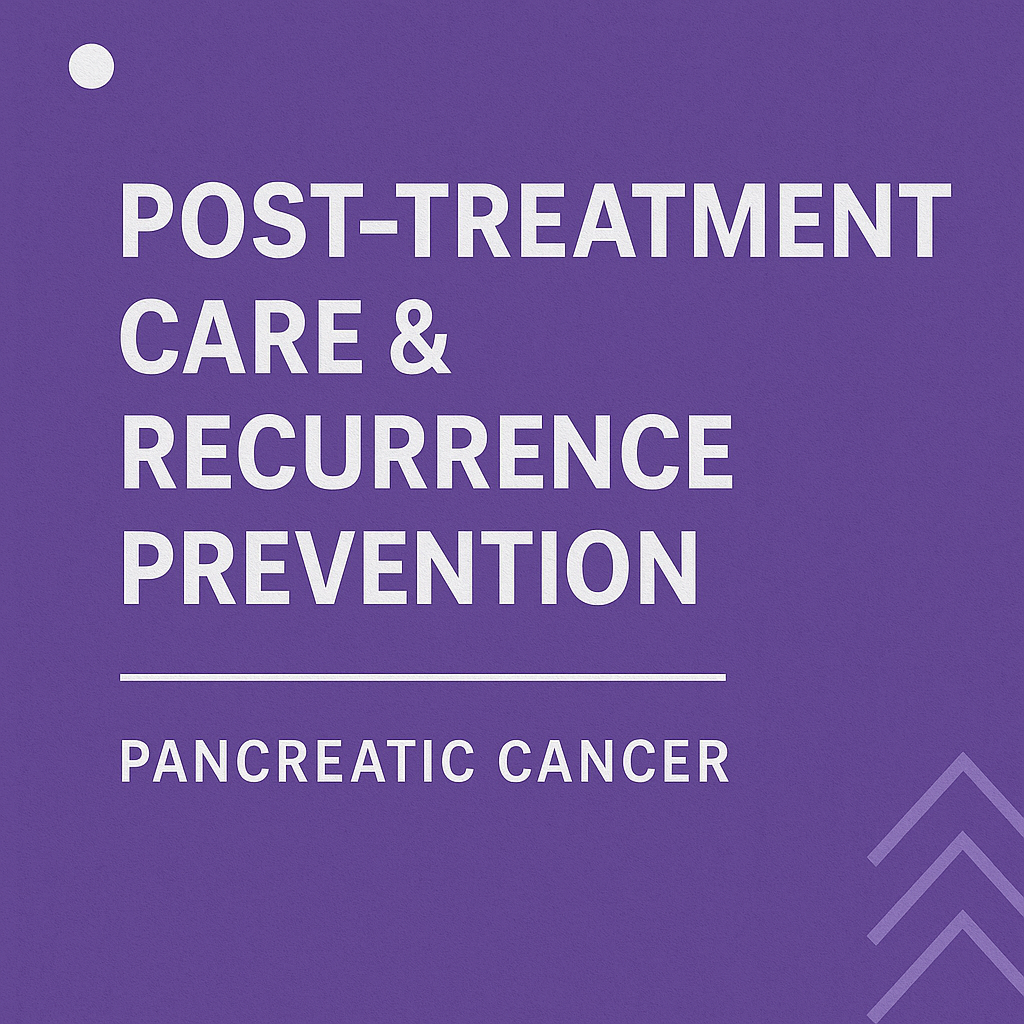Healthy lifestyle tips and caregiver support after treatment.
Completing treatment for pancreatic cancer—whether surgery, chemotherapy, or participation in clinical trials—is a major milestone. For survivors, caregivers, and families, the next stage brings new questions: How do we support recovery? What can we do to reduce the risk of recurrence? At Sky Foundation, our survivor-led leadership and committees provide insight from people who have walked this road, offering practical guidance and hope for the future.
Supporting Physical Recovery
Recovery looks different depending on the type of treatment. Caregivers can help by focusing on daily needs that support healing:
- Nutrition: Work with a dietitian to build a nutrient-rich plan that supports digestion and weight stability.
- Hydration: Encourage consistent fluid intake to reduce fatigue and aid digestion.
- Activity: Support gentle movement, like walking or light stretching, to rebuild stamina.
- Rest: Allow for frequent breaks, naps, and quiet spaces to avoid overexertion.
📖 Resource: American Cancer Society – Life After Cancer
📖 Resource: Oncology Nutrition – Recovery Diet Guidance
Emotional Healing After Treatment
Transitioning from active treatment to survivorship can bring unexpected emotions. Survivors may feel relief, but also anxiety about recurrence.
- Normalize emotions: Understand that fear and worry are common post-treatment.
- Seek counseling: Professional help can address post-treatment stress.
- Join survivorship groups: Connecting with others who’ve completed treatment provides perspective and reassurance.
Sky Foundation offers survivor and caregiver communities where families can share experiences and support one another in this new chapter.
📖 Resource: Cancer Support Community – Life After Cancer
Preventing Recurrence: Healthy Lifestyle Tips
While no plan can fully prevent recurrence, adopting healthy habits may reduce risk and improve overall well-being.
- Nutrition: Focus on whole foods, fruits, vegetables, lean proteins, and healthy fats. Limit processed foods and red meat.
- Exercise: Aim for at least 150 minutes of moderate exercise per week, adjusted for recovery stage.
- Weight management: Maintain a healthy weight to reduce strain on the body.
- Quit smoking & limit alcohol: Both increase risk of recurrence and other health issues.
- Routine screenings: Follow up with all imaging, blood tests, and medical visits.
📖 Resource: National Cancer Institute – Cancer Prevention Overview
📖 Resource: Mayo Clinic – Pancreatic Cancer Follow-Up Care
Role of Caregivers in Survivorship
Caregivers remain important after treatment ends. Roles often include:
- Helping manage lingering side effects such as fatigue or digestive issues.
- Encouraging healthy lifestyle changes.
- Accompanying loved ones to follow-up appointments.
- Providing reassurance when fear of recurrence surfaces.
Sky Foundation’s caregiver committees provide opportunities to learn strategies directly from other families who have supported loved ones in recovery.
Legacy of Care
Celebrating recovery is also a time to reflect on impact. Many survivors and families choose to give back by supporting others still on this journey. Sky Foundation’s Legacy Giving program allows families to create lasting impact by funding survivorship programs, caregiver resources, or research through their will or estate planning—ensuring recovery stories inspire hope for years to come.
Helpful Resources at a Glance
- American Cancer Society – Life After Cancer
- Oncology Nutrition – Recovery Nutrition Guidance
- Cancer Support Community – Life After Cancer
- National Cancer Institute – Cancer Prevention
- Mayo Clinic – Pancreatic Cancer Follow-Up Care
Key Takeaway
Recovery after pancreatic cancer treatment is a new chapter filled with both hope and uncertainty. By focusing on physical healing, emotional support, and healthy lifestyle choices, caregivers and survivors can strengthen resilience and reduce recurrence risk. Sky Foundation provides survivor-led communities, caregiver resources, and Legacy Giving opportunities to ensure that recovery journeys inspire lasting hope and progress.

